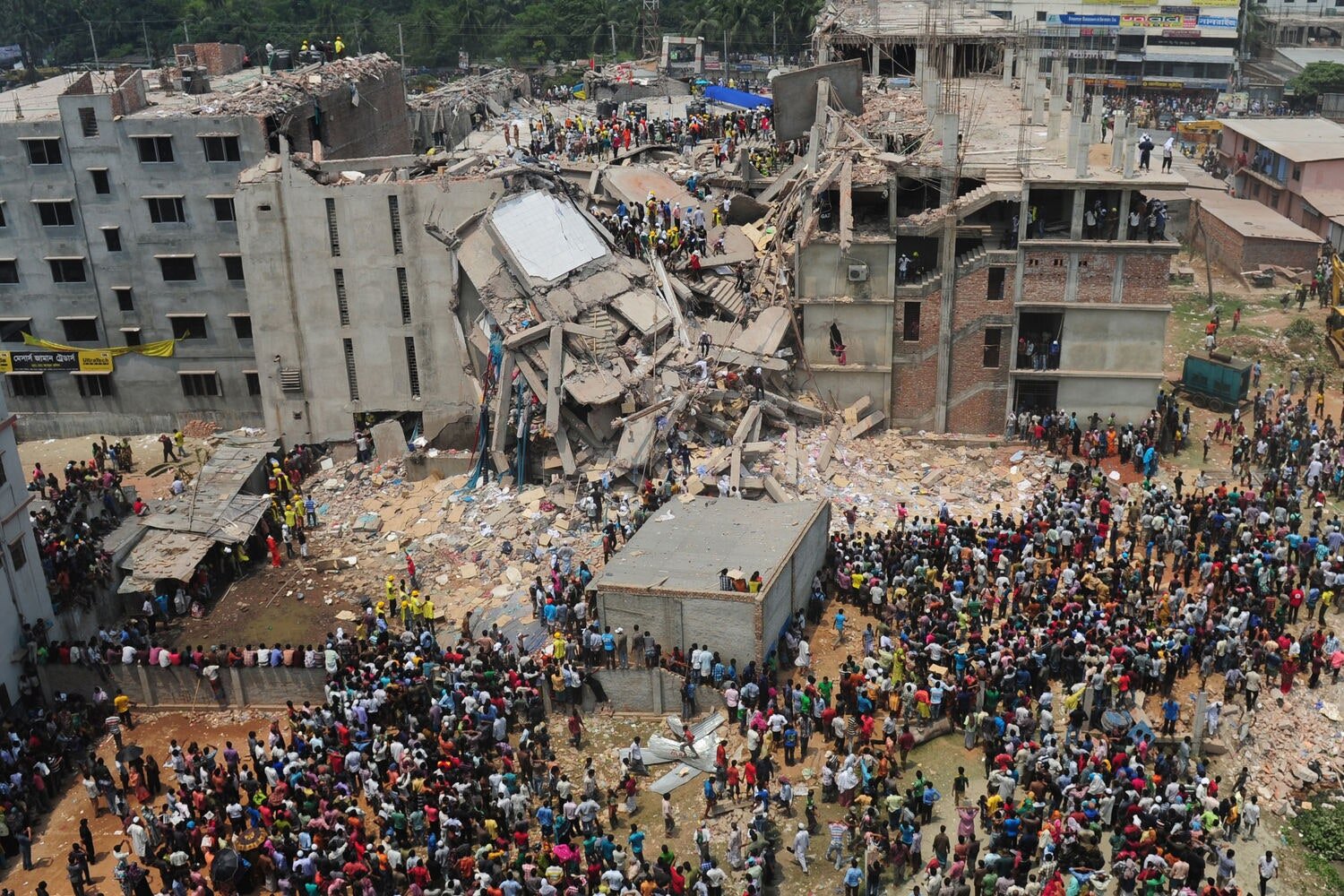
Image Credit → Arale Reartes
SUSTAINABILITY • 03 June 2021
Words by Laura Pitcher
Why Fast Fashion Is a Social Justice Issue
Here’s why advocating for a circular fashion industry is a human rights issue.
At this point, it’s been well established that the fast fashion industry is plaguing our environment, with the fashion industry alone accounting for 10% of global carbon emissions. What’s less discussed in sustainable fashion circles, however, is why advocating for a slower or circular fashion industry is a human rights and social justice issue.
The Exploitation of Garment Workers
A recent report by the Worker Rights Consortium detailed that there are more than 150 million workers in lower-income countries producing goods for export to North America, Europe, and Japan. In the apparel, footwear, and textile sector, many of these workers are women who are their family’s primary wage earner. Underpaid and in poor working conditions, these workers are some of the most vulnerable workers in the global economy. They were also subjected to the partial or complete shutdown of thousands of factories in producing countries when the pandemic began to spread worldwide last year.
Because fast fashion cannot exist without the exploitation of garment and other industry workers (to keep prices low enough for a high rate of consumption), the current fast fashion model is both an environmental and social justice crisis. The social costs also span far beyond working conditions.
"From the growth of water-intensive cotton, to the release of untreated dyes into local water sources, to worker's low wages and poor working conditions, the environmental and social costs involved in textile manufacturing are widespread," said Christine Ekenga, assistant professor at the Brown School and co-author of the paper "The Global Environmental Injustice of Fast Fashion," published in the journal Environmental Health.

April 24, 2013 Rana Plaza Dhaka garment factory collapse
Image → Munir Uz Zaman/Agence France-Presse — Getty Images
The Impact of Fast Fashion on BIPOC Communities
Fast fashion and racism are intrinsically linked, as of the 74 million textile workers worldwide, 80% are women of color. “The economic exploitation that fast fashion is reliant upon is a legacy of colonialism,” social entrepreneur Kalkidan Legesse wrote for The Guardian. This includes contributing to environmental racism, as a disproportionate impact of environmental hazards are on people of color. Throughout the entire lifecycle of a garment, communities of color face environmental hazards, including toxic fumes and inhale fabric dust and runoff of chemical dyes ending up in water sources. In China, 70 percent of the rivers and lakes are contaminated by 2.5 billion gallons of wastewater from the textile and dye industry.
Because the environmental and social impacts of fast fashion disproportionately impacts BIPOC communities, it is a pressing global environmental and social justice issue. It also reflects the climate crisis at large, which disproportionately impacts Black people, Indigenous people, and people of color. These communities are more likely to experience the impacts of climate change (flooded homes, vanishing sources of drinking water, disrupted local economies, extreme heat waves). In fact, a Stanford University study found that climate change has increased economic inequality between “developed” and ‘developing nations’ (or exploiting and exploited countries) by 25% since 1960.

Workers in a dyeing factory in the Bangaldesh capital Dhaka in February 2016.
Image Credit → Mohammad Ponir Hossain/NurPhoto/Getty Images
Copying Black Creatives
Along with fast fashion garment workers being predominantly women of color and BIPOC communities being most impacted by environmental disasters, the fast fashion industry also profits off the creative ideas of Black people. “Fast-fashion retailers exploit garment workers, who are mostly women of color; they over-market to Black women, although they do not protect our interests; they steal designs of Black women and other rising designers; and they [do] horrific harm to our planet,” said sustainable fashion advocate Mica Caine, in a Glossy interview.
Numerous fast fashion houses have been caught copying the work of emerging Black designers to mass produce items at a lower cost. This includes Fashion Nova, who copied the work of Luci Wilden, a crochet artist and founder of the Knots & Vibes brand, in 2019. “They’ve mass produced this with a retail price of 40USD. That makes their production price around $13, meaning whoever crocheted this was paid less than $1 per hour,” Wilden wrote in the post exposing the brand. “Not only are they stealing my design but they’re using it to exploit people and profit from it which is the opposite of what @knots.and.vibes stands for.”
There is no separating environmental justice and social justice when critiquing fast fashion brands and creating a more sustainable fashion industry requires advocating for both by elevating BIPOC voices. On a day-to-day level, this can look like calling out racism from fashion brands, asking questions about the payment and working conditions of garment workers, and choosing to purchase from Black and Indigenous small businesses instead of fast fashion giants. After all, buying high-quality, slow or circular fashion garments wherever possible is an integral element in the shift away from our exploitative linear model to a system that prioritizes not just the planet but also people.
